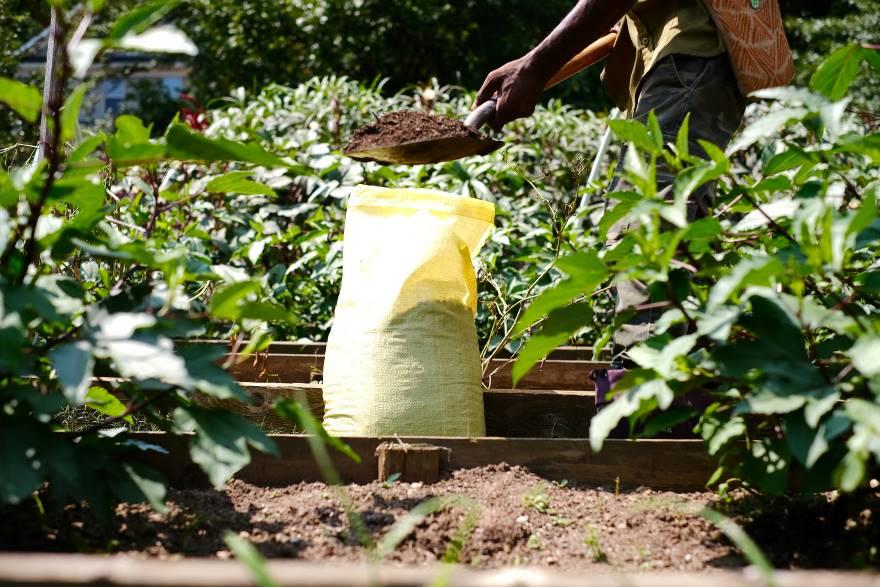What Do Georgians Think About Composting? New Research From UGA
Published 08-13-24
Submitted by Ray C. Anderson Foundation

Are Georgians interested in composting more at home, or participating in municipal or private composting programs? New research conducted by the University of Georgia seeks to understand current attitudes toward composting and how we can inspire more Georgia families to give it a try in their own backyards.
What Is Composting?
As you likely know, composting is one of the climate solutions Drawdown Georgia has identified for our state. But how does it work?
Composting is a natural process that transforms organic waste materials into a rich, nutrient-dense soil amendment known as compost. This process is a crucial component of sustainable waste management and soil health enhancement, and that’s what makes it a great climate solution.
How Does Composting Break Down Food Scraps?
At its core, composting involves the decomposition of organic matter by microorganisms under controlled aerobic (oxygen-rich) conditions. The process requires four main components: organic materials, moisture, oxygen, and microorganisms.
- Organic Materials: These are typically categorized into "greens" and "browns." Greens are rich in nitrogen and include items like vegetable scraps, coffee grounds, and grass clippings. Browns are carbon-rich and include materials such as dried leaves, straw, and paper. A balanced mix of greens and browns is essential for optimal composting.
- Moisture: Water is necessary for the microorganisms to thrive. The compost pile should be kept moist but not waterlogged, with an ideal moisture content of about 50-60%.
- Oxygen: Aeration is crucial for the aerobic decomposition process. Turning the compost pile regularly introduces oxygen, which helps to speed up the breakdown of organic materials and prevents the production of unpleasant odors, like methane, associated with anaerobic decomposition.
- Microorganisms: Bacteria, fungi, and other microorganisms are the primary decomposers in composting. These organisms break down organic materials into simpler compounds, ultimately producing humus—a dark, crumbly, and nutrient-rich substance.

Ray C. Anderson Foundation
Ray C. Anderson Foundation
The Ray C. Anderson Foundation was created in honor of the late Ray C. Anderson (1934-2011), founder of Interface, Inc. During his time at Interface, Ray championed the notion of businesses doing well by doing good. It’s these noble qualities of advancing knowledge and innovation around environmental stewardship and sustainability that recognized Ray as a pioneer in industrial ecology.
The purpose of the Foundation is to perpetuate these shared values and continue the legacy that Ray left behind. Through research and funding, the Foundation aims to help create a better world for future generations—tomorrow’s child. Join us as the story of the Foundation continues to unfold.
More from Ray C. Anderson Foundation

